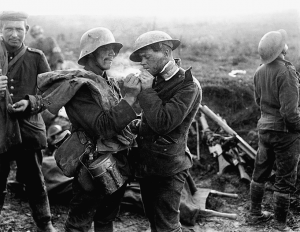I’ve had a cold this week, so have not been able to record a new song for the blog (and, unusually, I’d used up all the recordings in my store). So here’s one I prepared earlier – 15 years ago, to be exact.
It’s a track from our CD A Taste of Ale, recorded to accompany Roy Palmer’s book of the same name. As far as I can see, all Roy’s book has to say about the song is that the words are anonymous, nineteenth century. Presumably his source was this ballad from the Bodleian collection, printed in Manchester in the first half of the nineteenth century.
The tune was composed by Roy’s wife, Pat. Although it’s an inconsequential little song, I have to say I rather like our arrangement, and was very pleased with the tune I came up with for the instrumental breaks.
Last week I referred to Pentangle’s ‘Lord Franklin’ possibly being the only known instance of Bert Jansch playing concertina. Well this is almost certainly the only recording in existence of me playing the autoharp.
Incidentally, I’m linking to a YouTube video below. It’s one of those videos where there’s nothing to watch, just a still image accompanying the audio stream. I noticed just recently that all of the Magpie Lane albums for Beautiful Jo have been uploaded to YouTube by “The Orchard Enterprises”. According to Wikipedia they are “a music, film, and video distribution, marketing, and sales company and top-ranked Multi-Channel Network that works with independent artists, labels, and other content providers to distribute content to hundreds of digital and mobile outlets around the world, as well as physical retailers in North America and Europe”.
Now I’m not sure how I feel about this. Our albums have been on Spotify for some while now – I think this coincided with, or was a consequence of, Beautiful Jo’s catalogue being put on digital platforms such as iTunes, eMusic and Amazon. Record companies and artists get an infinitesimal payment for each Spotify play. But at least there is some payment. Having the albums free on YouTube really does seem to be just giving it away.
I’m not averse to making my music freely available, if I choose to do so myself (this blog being an obvious example!). You can listen to my album Love Death and the Cossack for nothing over on Bandcamp. And the same goes for the three Geckoes albums. But we chose to put them online. And you have the option of paying me / us if you want to download the albums as high-quality audio files.
Some years ago, I was contacted by a bloke who had put half a dozen of our songs on YouTube, with accompanying montages of images. He was looking for our retrospective blessing. Clearly he was a fan, and he had the best of motives, but I’m afraid I couldn’t bring myself to send him any kind of a reply. As someone whose day job involves a certain amount of work around avoiding copyright infringements, I was flabbergasted by the number of separate copyrights these video and audio mash-ups must have violated. But no point complaining, I thought, it’s just the way the world is going. Little did I know just how right that would turn out to be.
Still, if you would like a physical copy of A Taste of Ale, or indeed any of our albums, do come and see us at one of our gigs this Christmas, and buy a copy!
The Mail Coach Guard
Magpie Lane, from the album A Taste of Ale (BEJOCD-32, Beautiful Jo, 1999)
Andy Turner – vocal, autoharp
Di Whitehead – cello
Benji Kirkpatrick – guitar
Mat Green – fiddle
(apologies to Tom Bower who I thought played flute on this track – lost in the mix, perhaps?)










